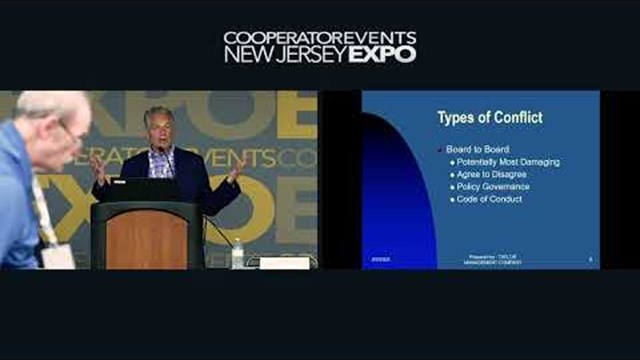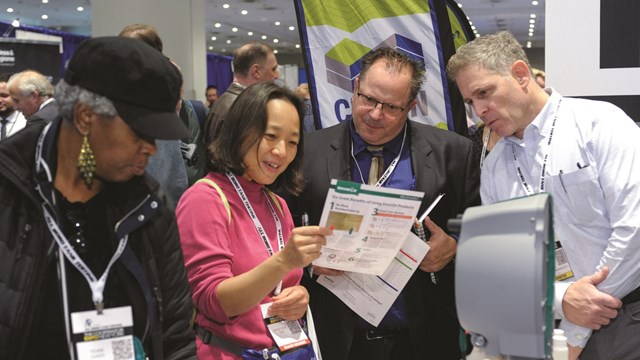Attorneys and community association managers can be a godsend for the board of a co-op, condominium or HOA. Most boards consist of volunteers who usually have quite busy external lives themselves, so having an experienced professional on the team for advice, guidance, and enforcement of policy can be a huge help.
But even so, it’s the board that is elected by residents to uphold their community’s best interests, and the board that is accountable for major decisions. Over-reliance on third parties such as managers and attorneys can sometimes lead to internal issues, especially – but not only – if those third parties are not acting in good faith. That’s why it’s imperative for board members to understand when to delegate and handle things internally, as well as how to identify when that trusted adviser may be overstepping his or her bounds. A board that hands over the keys to its kingdom to an unelected party is courting trouble – and the wrath of its constituents.
Know Your Role
“A board needs to make sure that it has all of the information necessary in order to have productive discussions and make proper decisions,” says Pamela Lytle, manager of Winnetka Mews Condominium Association in Winnetka, Illinois. “I believe that the best boards use their professionals – whether manager or attorney, accountant or engineer, etc. – liberally, and that a liberal use will shield the board from liability.”
To be clear, however, a board should think of itself as the primary decision maker on all association matters. Any advice should be evaluated on its merits – not followed blindly. “Some boards simply permit the managing agent to make all of its decisions, which is not correct,” warns Caroline Record, a partner at the Cedar Knolls office of law firm Hill Wallack LLP. “I advise boards that they are ultimately responsible for any and all decisions made by the manager, and, as such, they should know what that person is doing. I have not worked with a board that has been over-reliant on me. I try to stress to both boards and managers that I am around for questions and consultation and to lay out options, but I will not be making any decisions for them. That’s what the board members were elected to do.”
Record stresses that boards have reasonable and realistic expectations for management and legal counsel, and that these professionals should be treated as such. “When comments become personal and/or nasty, and there is constant bickering, it’s probably time to make a change such that the corporation is best served by those elected and retained to act in its best interests,” she says. “I suggest that a board has the right to ask for a change in manager by the management firm in the management agreement. Board members can resign, and professionals can as well, should the tensions get too high. I’ve done it myself!”
Hold Your Horses
While certain aspects of managing an association may come naturally, or seem like common sense, local laws and ordinances can be far less straightforward. That’s why it’s not just essential for an association to have the counsel of a tested attorney, but to also be versed enough in how the law pertains to its business to recognize whether that attorney may be overstepping their bounds.
“I’ve seen problems with boards where they over-rely on outside counsel,” warns Ray Mellon, a senior partner with Zetlin & De Chiara LLP in New York City. “My main focus and practice is in construction law, and I’ve had occasions wherein someone drafted a license agreement – the counsel for the co-op in collaboration with a neighboring developer, for example – and they did just a really horrific job. Seventy-five percent of my work right now is license agreements. So I look at something like this and I’m like, ‘Oh my god; there’s no appropriate protections; there’s no review or drawings...’ all things that knowledgeable construction counsel would see in a heartbeat.”
Problems can also arise when an attorney gets too big for their britches. “We’re all bright; we can all learn this stuff,” Mellon says. “But that first time you attempt to do something about which you are not educated, you’re probably going to get burned. That’s not how you deal with clients properly in terms of discharging your fiduciary responsibilities. You have to recognize and accept when an idea is beyond you. If I’m a good attorney representing a co-op or condo, I have to say, ‘Hey guys or gals, you need somebody who specializes in this area,’ and maybe I even know somebody. Because I oftentimes get brought in later in the process, where the association wants me to work some magic, but they’ve already signed some agreement. Had they brought me in earlier, I would have been able to say, “This is no good; this will impact your property negatively.’
“One thing I pride myself on is knowing the building code, but a standard co-op or condo attorney may not be exposed to it as much,” Mellon continues. “Board members must have the ability to push a little further, to say, ‘Hey [attorney], you’re great with resolutions, meetings, authorization agreements and what-have-you, but this thing seems to be a little different; this is the first time a 40-story building is going up next to our property.’ And maybe something major like that could be the trigger for the board to ask, ‘What’s your experience with this? With all due respect, we love you and will continue to do so, but have you ever dealt with a situation like this?’”
The Scourge of Complacency
It’s worth noting that when the scales of power tip unfavorably toward a third party, it is not always the fault of that outside counsel. A board that grows complacent, or even lazy, can find itself delegating more and more, only noticing that it has lost control of its association when it’s in serious trouble.
“I often encounter associations where the board members play little if any part in the decision making or actions of the corporation, instead relying on management for practically everything – including financial and legal decisions – without board involvement,” observes Lisa A. Magill, of counsel with Kaye Bender Rembaum, which has offices in Pompano Beach and Palm Gardens, Florida. “Board members must understand that they are ultimately liable for association operations. If an agent or employee discriminates in connection with the sale or lease approval process, ignores code violation notices, has work performed without permits and the like, then the board has to face the consequences, as fines or penalties will be imposed against the association.”
And, sadly, resident-led efforts to shine light on association malfeasance can sometimes backfire. “Unfortunately, owners raising red flags are often deemed ‘rabble rousers’ or troublemakers, even if they are legitimately attempting to exercise their rights,” Magill says. “I am always suspicious if there is an effort to preclude owners from access to association records, especially of the financial variety. While attorneys generally only have one or two authorized contact persons within the association, legal counsel should not shy away from sharing files with board members – unless there’s a conflict of interest or some other compelling reason for them to do so. Board members should also be suspicious if they are shut out of correspondence with the attorney.
“All board members, regardless of whether they hold positions as officers, should undertake appropriate due diligence with respect to association operations,” Magill concludes. “It is not enough to ‘let someone else handle it,’ because there are fiduciary responsibilities involved. While professionals may dislike micromanagement, there should be no reason those professionals do not open their records and share information as appropriate. Acting defensively, withholding access to records, allowing products and services to be procured from ‘preferred providers’ without board analysis of bids or interviews with those providers, and general lack of communication are all signs that further investigation is warranted.”
The message here is simple enough: vet and hire professionals your board can trust, and upon whose judgment and expertise you may rely, but don’t simply ‘set it and forget it’ when it comes to the running of your community. You’re the board, and you were chosen to lead your association or building – but you don’t have to do it alone.
Mike Odenthal is a staff writer/reporter with The New Jersey Cooperator.










Leave a Comment